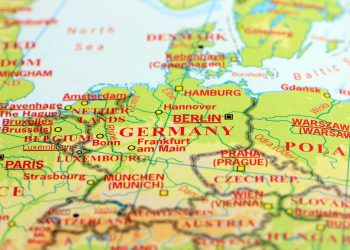Russia’s Arctic North is facing two conflicts; valuable minerals and preserving the wildlife. The latter faces many challenges, as the decline in Arctic sea ice provides a new economic opportunity for Russia in that area, concerning the country’s trade relations with others.
According to BBC, Russian president Vladimir Putin called Russian companies to increase their cargo traffic on the Northern Sea Route to an annual 80m tonnes by 2024.
Thus, Russia signed trade agreement with India and China who look for new opportunities in the “raw materials” industry.
Russia’s “untouched” centres:
One centre on a big open-cast coal mining project, in the Taymyr Peninsula, is located in the north of central Siberia, and holds a reach amount of high-quality coking coal (anthracite), used to make steel and aluminium.
Although President Putin is said to be in favour of the environment and the protection of it, he is, in the meantime, discussing about the expansion of fossil fuel projects in that wilderness.
BBC reports that coal is going to play a crucial role to meeting the 80m-tonne target for Arctic deliveries, which will go via Russia’s far east.
Although this kind of shipments may provide benefits to the Russian shipping industry, they also pose risks to these remote areas; Given their location, trade will have to be conducted with icebreakers as winter temperatures plunge below minus 20C.
Up to now, in Taymyr the coastal tundra – marshland with permanently frozen subsoil – is a nesting ground for migratory birds, which fly there for the brief Arctic summer.
In line with the pollution threat, the challenges for the species inhabiting in the area are crucial, as reindeer are now seriously threatened by poaching, says Alexey Knizhnikov, a conservationist at WWF Russia.
[smlsubform prepend=”GET THE SAFETY4SEA IN YOUR INBOX!” showname=false emailtxt=”” emailholder=”Enter your email address” showsubmit=true submittxt=”Submit” jsthanks=false thankyou=”Thank you for subscribing to our mailing list”]
Similarly, remote places lack equipment to deal with a potential pollution incident, whereas long voyages to India mean more greenhouse gas emissions from shipping.
Moreover, estimations state that the Arctic has a 72% of Russia’s total gas reserves, while oil and gas projects are developed further west, mostly on the Yamal Peninsula.
BBC adds that there is already a pollution with heavy metals and sulphur dioxide (SO2) around the city of Norilsk, from the Norilsk Nickel ore smelter.
Furthermore, a bay south of Dickson, located in one of the world’s remotest settlements is an ecological danger zone.
An anthracite coalfield lies at Medusa Bay, part of the Bolshoi Arkticheskiy nature reserve.
The bay has been in the middle of legal battles, between the open-cast coal company, Vostokugol and the state environmental monitoring agency, Rosprirodnadzor, over mining violations.
The company is appealing against a ruling, according to which it took advantage of its license; Specifically, a Moscow court revealed that the company mined and exported coal from Medusa Bay on the contrary to only being permitted to prospect the area.
The Russian ministry of Natural Resources more than halved the size of a buffer zone protecting the Medusa Bay nature reserve. Specifically, BBC addresses that the reduction was from 3,020 hectares to 1,150.
This action was against the Government’s plea in 2016 and Taymyr nature reserve authority to site a planned new coal terminal well away from the reserve.
Concerning Medusa Bay, Vostokugol is developing the Bay coalfield and two coal terminals for loading on to ships.
Greenpeace opposes to these plans, commenting that the terminal is located only 1km from the nature reserve.
Despite Greenpeace’s opposition, Vostokugol plans to export 20m tonnes of coal from there by 2024, while Severnaya Zvezda has been also granted with licenses to mine coal in Taymyr.
Vostokugol started mining and building infrastructure at Medusa Bay in 2016, but later suspended operations.
Going against the environmental preservation, Russia’s strategic priorities are boosting this mining and energy extraction in the polar wilderness.
Concluding, Russia aims to boost its coal exports to India six-fold by 2025, to 28m tonnes annually.





























































